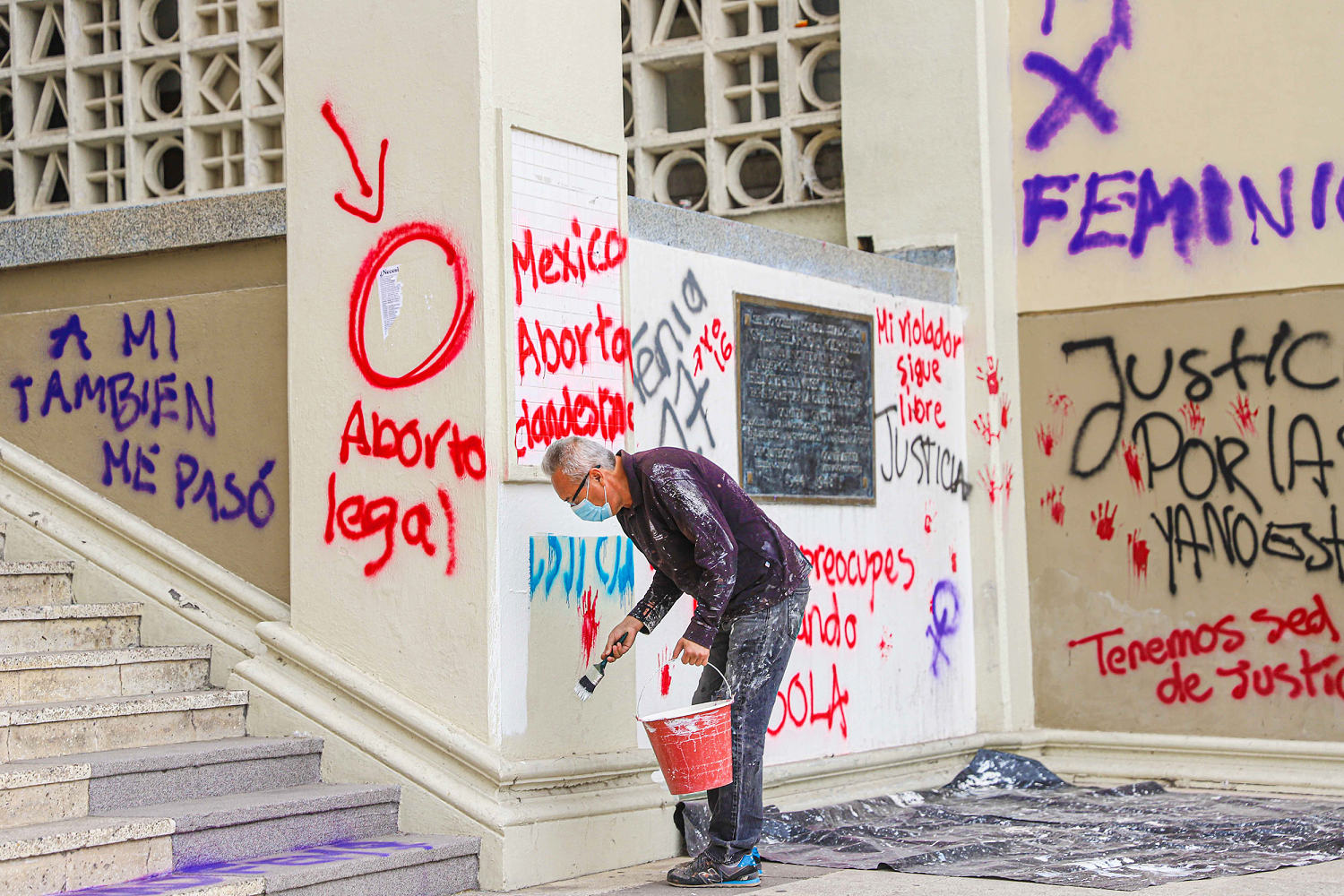Mexican state of Sonora closest to Arizona, bans most abortions, creating regional void

“The communities most impacted are those who are undocumented, those who live in rural communities with very little resources, immigrant communities where language barriers are present for them, low income communities, and individuals who are facing other intersecting issues,” said Eloisa Lopez, executive director of the nonprofit abortion rights group Pro-Choice Arizona.
Many U.S. women are crossing the border to access the abortive drug misoprostol, which is sold over-the-counter in most of Mexico to treat stomach ulcers.
In Sonora, a sophisticated network of local activists have formed organizations that help get misoprostol to Mexican women — and American women — despite the state’s abortion ban.
But activists in Sonora say they’ve seen misinformation and price gouging by pharmacies in Mexican states with stringent abortion restrictions.
Andrea Sánchez, an organizer with the Sonora-based abortion advocacy network Aborto Seguro Sonora, said that most pharmacists in the state will require a prescription or overcharge women for the drug on the black market.
“We have heard of women who are sold a dose of no more than four misoprostol pills for 5,000 ($300) or 6,000 pesos ($360) and with that dose they generally will not achieve a successful abortion,” Sánchez said. “The serious thing is that women’s vulnerability is being abused, the situation they are going through, but also that they are playing with women’s health.”
A blueprint for cross-border collaboration
After Texas implemented a six-week abortion ban in 2021, activists in Mexican border states began receiving a flurry of calls and messages from American women seeking care on their side of the border.
Only one state along the Texas border, Coahuila, allows abortion in the first trimester.
Vanessa Jiménez, an activist with the Necesito Abortar México network in Nuevo León, another state bordering Texas, said she remembers on June 24, 2022, when Roe v. Wade was overturned, her organization received 70 calls, many from women in the U.S.
“There were very frightened women, there were even girls who had their appointments scheduled and had them canceled at that moment,” recalls Jiménez, who said that for decades — before Texas implemented strict abortion restrictions — women protesting for their reproductive rights in Nuevo León shouted slogans like “poor women can’t have an abortion, but rich women can go to Houston.”
In Nuevo León, there are only two legal grounds for obtaining an abortion: in the case of rape and when the person’s life is in danger if the pregnancy continues.
Due to these restrictions, Jiménez and a group of 20 women have focused on guiding and offering recommendations to people who wish to have an abortion using medications such as misoprostol and mifepristone, following the guidelines established by entities such as the World Health Organization and other leading groups.
“Apart from American women who write and speak only English, we also get a lot of women who are migrant women who cannot go to a clinic or pay for a trip to New York or California, where abortion is legalized, and who cannot cross into Mexico,” said Jiménez, who has been an abortion activist for more than 15 years. “Most of the women we help in the U.S. we also provide the medication free of charge.”
“We help more than 1,000 women per month,” said Jiménez, who estimated that approximately 30% of the counseling offered by her organization is for people from the United States, who contact them through social media or arrive in person.
In addition, seven years ago Jimenez founded a project called La Abortería, which is a space in her home where she helps women who don’t have a place to have a medical abortion. “There is a belief that you need to have a doctor at your side and a nurse, but the World Health Organization itself has stated that medical abortion can be performed as an extremely safe procedure,” she explains.
In Arizona, Lopez said that women affected by the state’s impending ban will likely seek abortions in California, Nevada or New Mexico before resorting to options in Mexico.
Whether Arizona’s ban stands after Election Day remains to be seen. State organizers say they have more than enough signatures to get a constitutional amendment on the ballot that would let voters weigh in on whether to create a “fundamental right” to abortion in the state until fetal viability. Dawn Penich, a spokesperson for the nonprofit coalition Arizona for Abortion, said the amendment has gained widespread support and momentum since last week’s ruling.
“Appreciation for one’s personal freedoms and liberty is a very Arizona idea,” said Penich, who added that, especially in the state’s rural communities, “the idea of getting the government out of your bedroom, out of your private life and out of your exam room is very popular.”
“It’s about having the choice and the ability to make the decision that’s right for you and your family,” she said.
Isabela Espadas Barros Leal reported from New York, and Albinson Linares from Mexico City.




